Following the success of the two seminars in 2024, the Lao Dong Newspaper organized the 3rd Cultural Industry Seminar with the theme: "Human resources and identity in developing cultural industry in Ho Chi Minh City" on the morning of June 10, at the newspaper's conference hall in Ho Chi Minh City. The seminar was coordinated in content by the Ministry of Culture, Sports and Tourism.
Human resources are not just artists
At major art training institutions in Ho Chi Minh City such as the University of Theater and Cinema, Ho Chi Minh City Conservatory of Music, Ho Chi Minh City University of Culture, Ho Chi Minh City College of Culture and Arts, etc., traditional majors such as performance, directing, sound engineering, theater, etc. are still maintained, but many new majors, essential for the development of the cultural industry, are still lacking or not synchronized.
For example, in the Southern region, there is currently no place to provide formal training in film theory and criticism. Many students who love film criticism must choose to study journalism or literature, then accumulate professional knowledge from practice. Meanwhile, theory and criticism are an important pillar of sustainable cultural development, helping to form a healthy creative ecosystem, fair criticism and orienting public tastes. People's Artist Dao Ba Son believes that this is a gap that needs to be considered and adjusted soon, to help develop human resources for the field of culture and arts in general, and especially the goal of cultural industry.
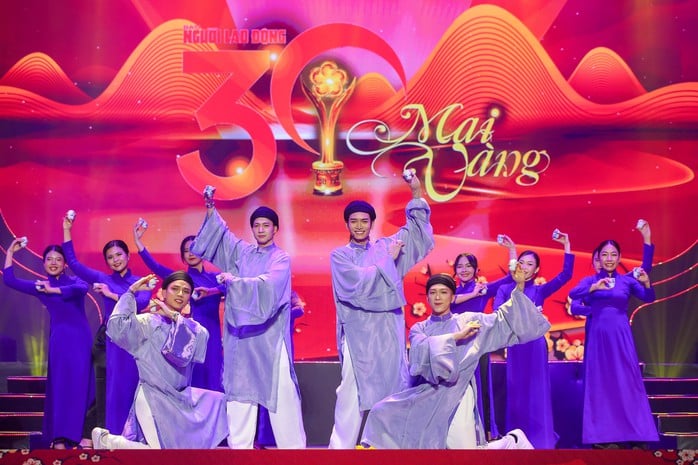
The talented group of the program “Anh trai vu ngan cong gai” performed the song “Mua tren pho Hue ” at the 30th Mai Vang Awards Ceremony. (Photo: HOANG TRIEU)
Associate Professor, Dr. Tran Yen Chi, former Head of Training Department - Ho Chi Minh City University of Theatre and Cinema, shared: "In many schools, students do not have a standard stage to practice; there is also no studio for film students to film test. They have to manage on their own, rent space, and ask for sponsorship. Thus, it is very difficult for them to develop professional skills in a fundamental way."
It is time for Ho Chi Minh City to look more broadly when it comes to human resources for the cultural industry. It is not only actors, musicians, singers… but also producers, art directors, stage managers, visual designers, sound engineers, post-production workers, event organizers, audience data analysts, media consultants, and even AI technicians in digital arts.
According to the Department of Culture and Sports of Ho Chi Minh City, the city currently does not have a system linking training - using - retraining cultural human resources according to the industrial model. Art schools train in a narrow specialized direction, lack management skills, interdisciplinary thinking and are not connected with labor-using units in the creative industry.
Meanwhile, the market has been making huge movements in experimental theater projects, street art, independent films, experimental music , etc. Reality shows that Vietnam does not lack young talent, but they lack an ecosystem for development, a playground to try their hand at, and a support mechanism to make a living from their profession.
After nearly a year of construction, Phu Tho Circus and Multi-Purpose Performance Theater (District 11, Ho Chi Minh City) has basically completed all tasks according to schedule. It is expected to be inaugurated and have its first show by the end of 2025. This construction project started at the end of April 2023, with a total investment of nearly 1,400 billion VND, with a scale of 2,000 seats and auxiliary facilities such as a multi-purpose training room, circus animal training and breeding area, restaurant, etc.
"However, there is no team of technicians and specialists to operate the performance. To develop the CNVH, in addition to investing in equipment and facilities, we also need to invest in people and a team of skilled specialists" - Associate Professor, Dr. Nguyen Thi My Liem, Vice President of the Ho Chi Minh City Music Association, worried.
From vision to reality
According to experts, the problem of high-quality human resources for the arts cannot be solved at the art school level or through infrastructure construction projects. It is an interdisciplinary problem from general education, university training to urban planning, investment policies and even state management. Ho Chi Minh City currently does not have a human resource training center for the arts on an integrated scale - a place that combines training with practice, where schools are linked with businesses and young artists have direct contact with the market. Without this model, it is very difficult to create human resources that "can both do the job and understand the market" - a minimum requirement to participate in the arts industry.
An entertainment program producer who once brought shows to Vietnam frankly shared: "Young audiences in Ho Chi Minh City are very open-minded, the market is willing to pay for high-quality artistic experiences, but we face great difficulties in terms of staff: stage technicians are not properly trained, backstage managers are not familiar with international procedures, young artists have not been trained in discipline and teamwork. These are real limitations when embarking on the goal of cultural industry".
Associate Professor, Dr. Nguyen Thi Minh Thai emphasized: "We must shift from training "professionals" to training "creators", "organizers", "cultural thinkers". To do that, training policies must be flexible, practical and closely linked to creative businesses. To succeed in the goal of industrialization and modernization, we need to quickly start implementing the synchronous training of high-quality human resources as mentioned above to have the basis to achieve the desired results".
Associate Professor, Dr. Tran Yen Chi analyzed: "Vietnam has a strategy for developing cultural industry until 2030. Ho Chi Minh City has a project for developing cultural industry for the period 2020 - 2030, but if the human resource problem is not solved, all goals will be difficult to achieve."
Cultural industry is an economic sector and like any other economic sector, the human factor is always the center. Without a strong enough creative staff, who understand and love the profession, it is impossible to create valuable artistic products and build a sustainable domestic cultural market. Ho Chi Minh City needs attention and fundamental strategic investment for the goal of cultural industry.
"This year, Ho Chi Minh City University of Theatre and Cinema is unable to enroll students due to a lack of qualified PhD teachers to open a stage directing training program. The team of specialists, art managers, critics, digital content creators, etc. also lacks teachers" - Associate Professor, Dr. Tran Yen Chi confided.
From another perspective, Associate Professor Dr. Phan Bich Ha, Vice President of the Ho Chi Minh City Cinema Association, is worried about the lack of English popularization for students majoring in cinema, music and theater. "Lack of foreign languages means not having the key to open the doors of knowledge to enter the era of Ho Chi Minh City's transformation to reach the cultural industry."
So, the big question is that if Ho Chi Minh City wants to become a cultural and industrial center, one of the core issues is human resource training. There needs to be a long-term, comprehensive and drastic strategy to develop creative human resources for artistic products serving the public and tourists. "If people are both weak and lacking, all stages, theaters, cinemas, or modern technology... will find it difficult to operate" - People's Artist Tran Minh Ngoc emphasized.
Associate Professor Dr. Phan Bich Ha said: "Theory is only a part. To train good human resources, Ho Chi Minh City must open "practice workshops". According to the ideal model proposed by many people in the industry, art students need to have direct access to professional spaces: theaters, television stations, music stages, post-production workshops... as a mandatory part of the curriculum. Without practice spaces, students will only learn how to make art... on paper".
From a management perspective, People's Artist Nguyen Thi Thanh Thuy, Deputy Director of the Department of Culture and Sports of Ho Chi Minh City, said: "Ho Chi Minh City has identified the development of creative human resources as one of the six strategic tasks until 2030, with clear directions: Close cooperation with training units; Building centers to nurture young talents; Encouraging training models combining digital technology and practical interaction; Taking advantage of opportunities from Resolution 98/2023/QH15 to attract investment and socialize creative human resource development programs".
(To be continued)
Source: https://nld.com.vn/nguon-nhan-luc-de-phat-trien-cong-nghiep-van-hoa-196250606215023089.htm




















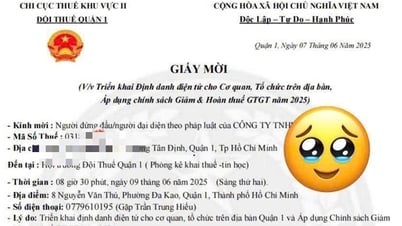
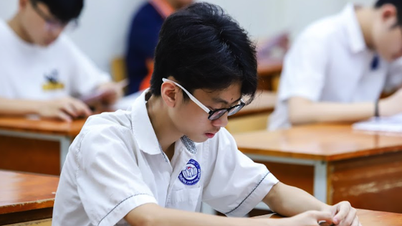



















































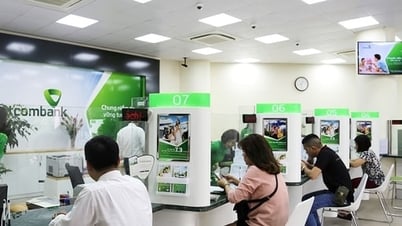





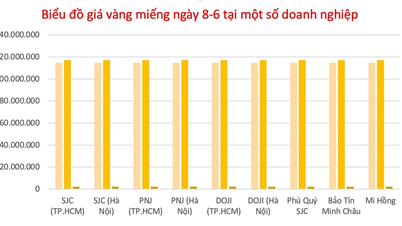









![[OCOP REVIEW] Tu Duyen Syrup - The essence of herbs from the mountains and forests of Nhu Thanh](https://vphoto.vietnam.vn/thumb/402x226/vietnam/resource/IMAGE/2025/6/5/58ca32fce4ec44039e444fbfae7e75ec)




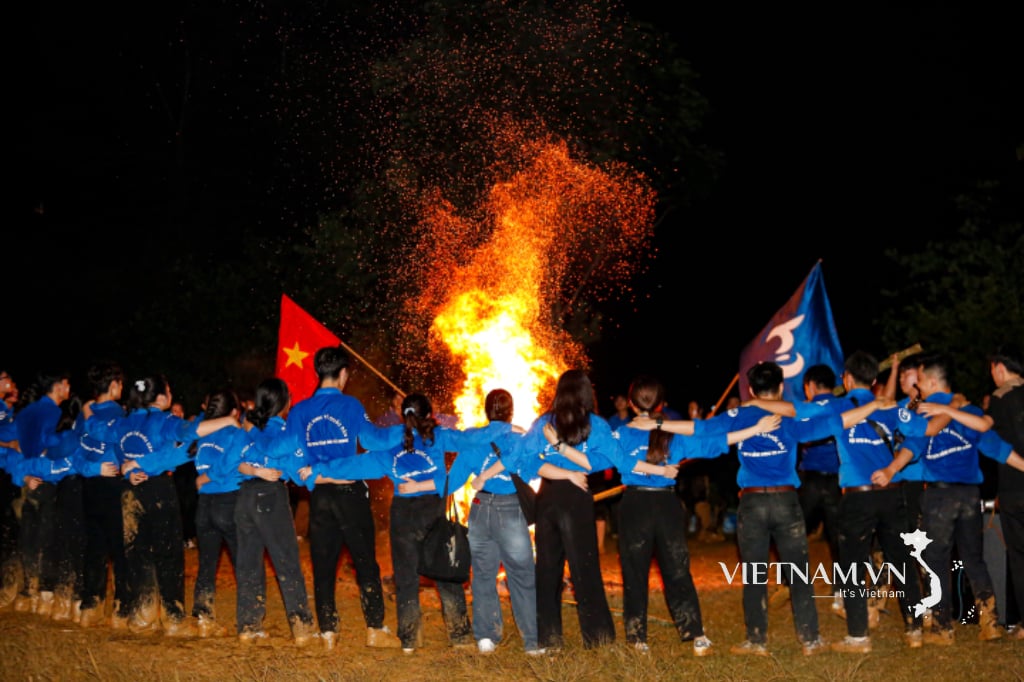
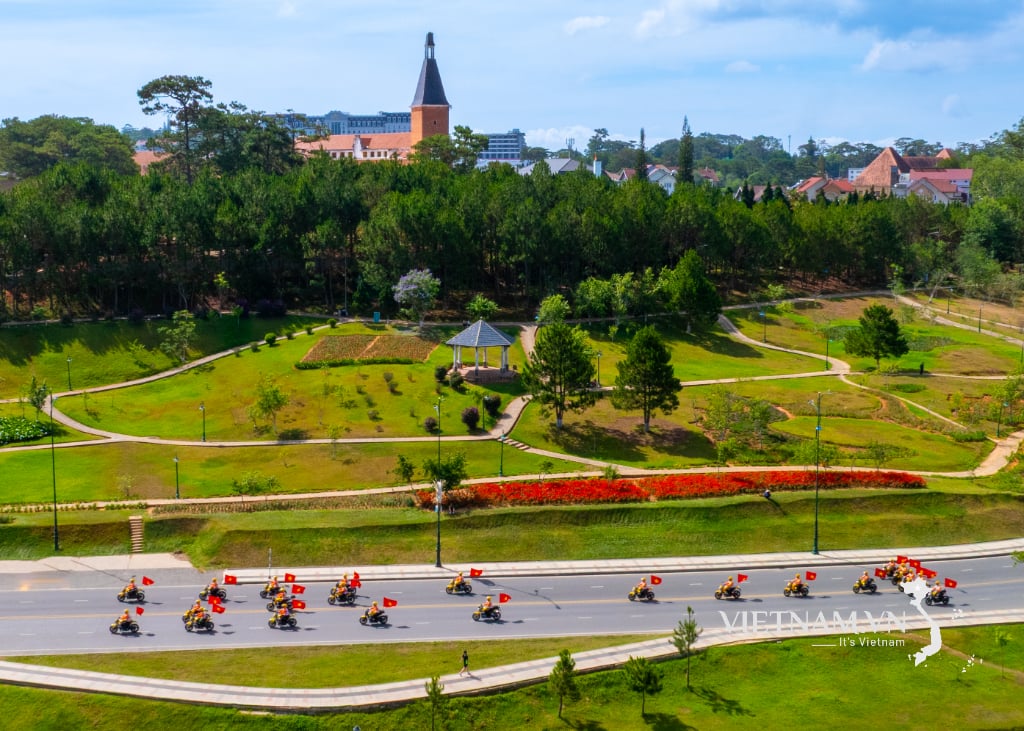

Comment (0)